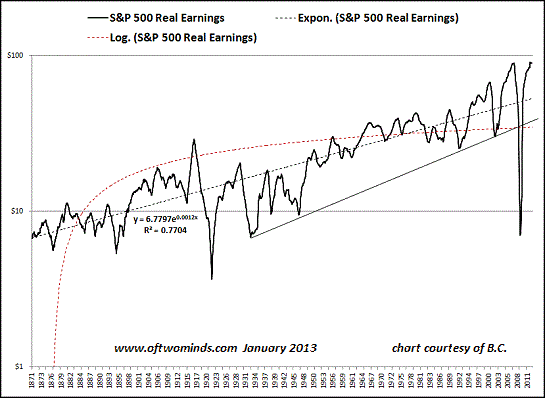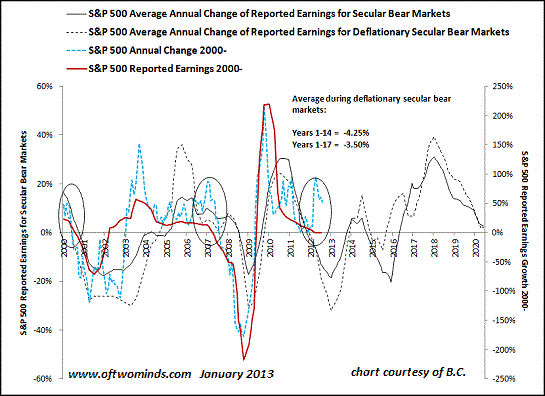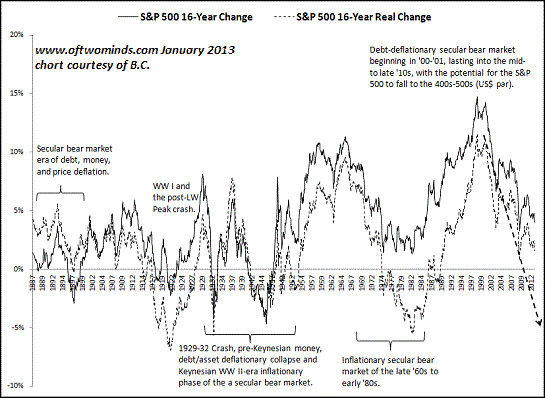Via Charles Hugh-Smith of OfTwoMinds blog,
The market may have reached cyclical highs in corporate earnings. That does not bode well for additional stock market advances.



The market may have reached cyclical highs in corporate earnings. That does not bode well for additional stock market advances.
If corporate earnings have topped out, what will push the stock market higher?The
usual answer is "central bank intervention," but history suggests that
in the long run, the market eventually correlates to corporate earnings.
Earnings up, market up; earnings down, market down.
Frequent contributor B.C. recently shared some insightful charts of S&P 500 (SPX) earnings. Here are B.C.'s comments on the first chart:
Note that real earnings (CPI adjusted) in '09 fell to the levels of the 1920s-30s, 1890s, and 1870s, and to the levels of the 1970s in nominal terms. A "typical" cyclical decline would take earnings back to the long-term trend from 1932 and the log trend line at $40s-$50s from $87 today.
Also, recall that the Fortune 300 firms have revenues equivalent to 50% to 100% of private GDP at $425,000/employee, so they are the economy. A decline of 50% for profits would be the equivalent of 10% of private GDP, which would match or exceed the decline in '08-'09, risking an increase in the Unemployment rate of 50-100% and a fiscal deficit exceeding 100% of tax receipts after Social Security and Medicare receipts.

The next two charts track long-term historic trends: here is B.C.'s commentary:
Reported earnings of the S&P 500 (SPX) are highly cyclical with a periodicity of ~51 months. Earnings are contracting year-over-year (yoy) as occurred in late '07 and early '08, early '01, etc. Profits as a percentage of GDP at 10-11% are 65-70% above the historical average and 130% above the historical average during recessions and bear market troughs, implying the risk of up to a 55-60% decline in profits and profits as a percentage of GDP, i.e., a roughly $1 trillion decline or an equivalent of 10% of private GDP.
The 10-yr. average P/E and 16- and 20-year real changes and real total returns to date for the secular bear market imply the risk of a crash at some point in the next 1/2 to 4 years and no real change to the S&P 500 for 20 years, indicating just how grossly overvalued stock prices are historically.


Thank you, B.C. for the charts and incisive commentary. Is
it mere coincidence that the SPX has doubled over the past four years
as corporate profits soared? If we haven't yet reached the 51-month
cycle peak, we are certainly close. What happens to the post-QE market
if earnings decline?